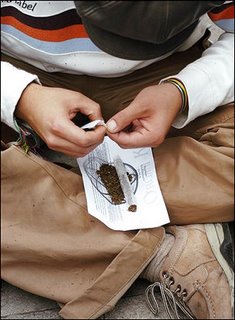
Mexicans have long been familiar with the lucrative market for providing alcohol and drugs to its Northern neighbor. This bilateral trade route has history dating back to the Prohibition era. The border towns of Tijuana and Juarez and has always served as convenient venues in that regard. Mexicans are also quite familiar with the deadly aftermath that the Narco Wars has brought to the border regions as drug cartels fight for territory, but the Mexican public has generally regarded the drug violence as an issue that affects those involved in the drug trade and it similartly sees drug consumption and resulting drug addiction as more of a US problem. The increased drug use on both sides of the border seems to prove the simply law "supply and demand" and was reiterated by one of the biggest drug kingpins ever captured.
As the level of drug consumption and drug addiction increase in the US and to a smaller extend in Mexico have seen the border region become a low cost alternative for US owned drug rehabilitation centers south of the border. It should come as no surprise that Mexico's legislative body would seek alternatives to that of the failed US policy on its War on Drugs.
The new drug laws in Mexico seek to better address drug addiction and move towards a more progressive solution rather than a continued criminalization of casual drug use which only leads to increasing the amount of citizens jailed.
From the Washington Post: